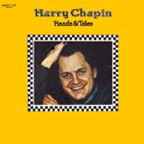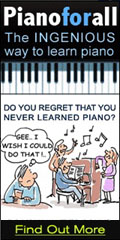![]()
  |

Heads & Tales
Harry Chapin
Elektra 75023
Released: March 1972
Chart Peak: #60
Weeks Charted: 27
 Driving a taxi was never anything you could consider special; it's the easiest job in the world to get, the hours are flexible, and it provides an acceptable interim form of employment. Until a few brief months ago (I think that's how it goes), Harry Chapin was a taxi driver, and in the minds of AM listeners, he will be fixed as that forever. To Harry's record company, to many of his listeners, and probably to himself, driving a hack is a glamorously proletarian occupation, and Harry is irresistible for it, which is another way of saying that Harry Chapin is pop's most recent manifestation of radical chic.
Driving a taxi was never anything you could consider special; it's the easiest job in the world to get, the hours are flexible, and it provides an acceptable interim form of employment. Until a few brief months ago (I think that's how it goes), Harry Chapin was a taxi driver, and in the minds of AM listeners, he will be fixed as that forever. To Harry's record company, to many of his listeners, and probably to himself, driving a hack is a glamorously proletarian occupation, and Harry is irresistible for it, which is another way of saying that Harry Chapin is pop's most recent manifestation of radical chic.
Radical chic, however, is not the only current phenomenon Harry is a party to. Harry's father was a drummer with Tommy Dorsey, and has written a definitive drumming manual; his brothers have a group called (natch) the Chapins, and one brother helped make the documentary Blue Water, White Death. Here then we have a family, like the Simons, like the Taylors, whose parents and children are individuals of accomplishment, and musical, too. By some coincidence, the Chapin Brothers even used to play with the Simon Sisters. By something less than coincidence, Harry often sounds an awful lot like Livingston and James.
"Taxi" is, of course, the most famous song on Heads & Tales, and that's unfortunate, because it's the album's second or third worst song, and a veritable textbook of lyrical, melodic and production errors. The opening melody is merely banal but, more seriously, Harry doesn't know how to construct a story. (Interestingly, Harry's publishing company is called Story Songs, and the word "tales" is part of the LP title.) His method is to build up an accretion of superfluous and irrelevant detail which effectively halts any narrative momentum. Lines like "She got in at the light," "She just looked out the window," "And she didn't say anything more" describe things which simply don't require description. Harry is relating a chance meeting between parted lovers, and how their present lives compare to the lives they once dreamed of.
The melody of "Taxi" takes as many twists and turns as those lives themselves, and the transitions among the lyrics are equally tortuous. There's a teeth-gnashing bridge ("There's a wild man wizard he's hiding in me") and another stanza, sung by counter-tenor and bassist John Wallace, which completely stands outside the body of the song ("And I'll tell you why Baby's crying/'Cause she's dying, aren't we all?). As compensation for this musical incoherence, Harry attempts to tie the literary knot in the last stanza where Sue, who planned to be an actress, is "acting" happy in her handsome home, and Harry, who wanted to fly, is "flying" high in his taxi, "Taking tips and getting stoned." It's too bad Harry's literary artifice had to lead to the most embarrassing line of the year.Harry's story songs are his worst. "Greyhound" has the same narrative problems as "Taxi" ("Later on, the bus arrives"), the same musical lack of structure, the same vocal exaggeration, and a similarly inadequate resolution -- "It's got to be the going, not the getting there that's good" -- a contrived summation, which, nevertheless, the Greyhound Bus Co. could make good use of in their next ad campaign.
"Dogtown" certainly extends the range of subjects singers have heretofore been limited to. It's a New England whaling saga, but here Harry's attention is focused not on the whalers themselves, rather, like "John Riley," on the wives, who are left alone for months on end while their husbands hunt blubber. Things start getting ominous when one whaler leaves his eager bride of ten days with the words, "Farewell my darling. I'm gonna leave you with my dog." The idea is that the dog should act as protection in the husband's absence, but gradually the canine comes to take the husband's place in other ways. As the manic swells with excitement, the bride admits that this "midnight horror of a hound... has been my only husband," that to suffer her existence, "You need the bastard of the mating of a woman and a dog." Harry's portrayal of sodomy in a Massachusetts fishing village is certainly vivid, and exposes a chapter of American history which has been timidly left in the shadows for too long.
Not everything on Heads & Tales is this preposterous. "Could You Put Your Light On, Please" is contemporary rockabilly in the fashion of Joe South or B.J. Thomas; "Empty," probably the album's best song, reminds of Liv and Paul Simon. Tunes like these are Chapin's best. They are simple evocations of mood, and though they still seem to be songs which have no compelling means to exist, other than to provide Harry with something to do with himself, they succeed better because, in their orderly alternation of verse and chorus, they risk less.
Certainly you shouldn't be prejudiced against Harry on the basis of the unavoidable "Taxi." Harry's comprehensive resume also includes some time spent as a stockbroker. Maybe his next album will tell us a story about that.
- Ben Gerson, Rolling Stone, 5/25/72.
Further reading on Super Seventies RockSite!: Album Review: |
This disc has its moments, but it doesn't come close to making me tingle. Chapin doesn't sing very well, he is not yet anywhere near his potential as a songwriter, and the arrangements are bland. His lyrics are sometimes skillfully done, but his melodies are either boringly predictable or simply don't go anywhere. "Taxi" is the strongest song, solely because of its lyrics; it tells the story of a taxi driver whose late-night fare turns out to be a former lady love, now set up in a ritzy neighborhood. When they arrive at her house, she mumbles something about how they must get together, hands him a twenty-dollar bill and says "keep the change." Chapin writes: "Well, another man might have been angry/ And another man might have been hurt/ But another man would never have let her go/ I stashed the bill in my shirt." I like that verse, and I think it shows that Chapin can eventually improve the quality of life around the turntable, if his talent is nurtured carefully, free of hoopla.
- Noel Coppage, Stereo Review, 6/72.
Harry Chapin is a songwriter, and a singer of songs. His songs are his alone, and their impact is in their own mark -- the touch of the songwriter's art which makes each song a molding of himself. In the closing song of the album, "Same Sad Singer," he writes: "Been putting myself here inside each song," which is what he does. From the graphically detailed ballad "Taxi," which describes the kind of chance meeting with a former love -- which we all dread and which most of us go through -- the same kind of empty phrases: "And she said 'We must get together'/But I knew it'd never be arranged./..." to the kind of empty that produces the song "Dogtown" with what Harry Chapin describes as "Loneliness and a rather sensational way of resolving it." Many of the songs on this, his first album, are about loneliness and loss.
Because these songs are intensely personal, they also have a quality of realism -- and the personal touches seem to make each song more universal. Harry Chapin sings, almost lightly: "Everybody's lonely/That's what it's all about" and it's true. Everybody at some point or other faces that moment of complete isolation, or that moment of discovery that it's that time again, whether the moment comes before a set of rusty railroad tracks, as it does to him in "Sometime, Somewhere Wife" or during a long lonely ride on a Greyhound bus.
The songs are handled with the sensitivity and finesse they deserve. The music itself is full of surprises, with subtle changes of key and rhythm, or sometimes, as in "Could You Put Your Light On, Please," with a kind of rocking spirited rhythm which accentuates the pathos in the lyrics by contrast.
Harry Chapin's first album should earn him a following. It is as solid piece of professional music as was ever laid down on wax, and the production itself is excellent. But this isn't just excellently produced, beautifully arranged and performed second-rate material. All of it falls second to the material. These songs are a kind of trip into self-discovery land, and somehow, after hearing the album, one emerges a little bit wiser.
- Anne Tan, Words & Music, June 1972.
Harry Chapin, on two particular cuts on this debut album, explodes with vast musical depth and power beyond 90 percent of the major acts in all music today -- "Taxi" and "Dogtown." With all of the sweep of classical music, yet the vibrant surge of rock, Chapin performs two masterpieces. A great album. Chapin is destined to become a music legend. Fast.
- Billboard, 1972.
![]() Reader's Comments
Reader's Comments
No comments so far, be the first to comment.
